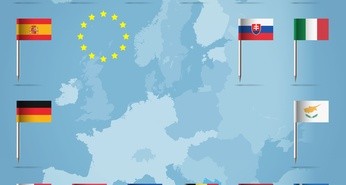German Chancellor Angela Merkel can certainly pat herself on the back: in the last days towards state elections in Hamburg, she achieved quite a lot, and she is prepared as she can be.
And after Sunday’s polls, will she be ready for a compromise with Greece on the Eurogroup meetings on Monday?
Here are the Chancellor’s big wins:
- Tough on Greece: Merkel and her finance minister Wolfgang Schäuble led a hard line against the new Greek government. This was most apparent in the press conference between the finance ministers, where Greek FM Yanis Varoufakis did even agree that they agreed to disagree. The principle that Greece must proceed with what was agreed upon won support in many other European capitals and won support at home.
- Deal on Ukraine: While it is still to be seen if this ceasefire holds, there is no doubt that Merkel had a key role in the negotiations, with her trips to Kiev, Minsk and Moscow. The German economy certainly needs better relations with Russia.
- Strong GDP: The 0.7% growth rate that Germany reported, more than double the expectations can be attributed to a weaker euro resulting in the ECB’s easing that Germany opposes, but nevertheless, Merkel can undoubtedly take credit for leading her country to excellent expansion. This is accompanied by falling unemployment, thus leaving little room for critics.
The tough stance on Greece is necessary to win voters that are considering voting for the anti-euro right wing AfD party (Alternative für Deutschland). This new party is wooing voters from Merkel’s base. The state parliament in Hamburg is in full control of the center left SPD party since 2011.
In order to have a chance of winning it back, she will need all the support she can get. Her recent achievements give her the best position to do so.
The German approach to Greece does not depend on the actual election results in the northern federal state, but only on the fact that it belongs to the past.
Why could Germany compromise? Because it needs Greece in the euro-zone as well. Once one country leaves, it could open the door for others. Without the weaker countries, the euro would have been stronger, turning the whole economic success into a nightmare.
Merkel changed her mind on various occasions in the past: on nuclear energy, minimum wage, etc. She could do it again, from a stronger position.
More: Euro wedged between a rock and a hard place over Greece
